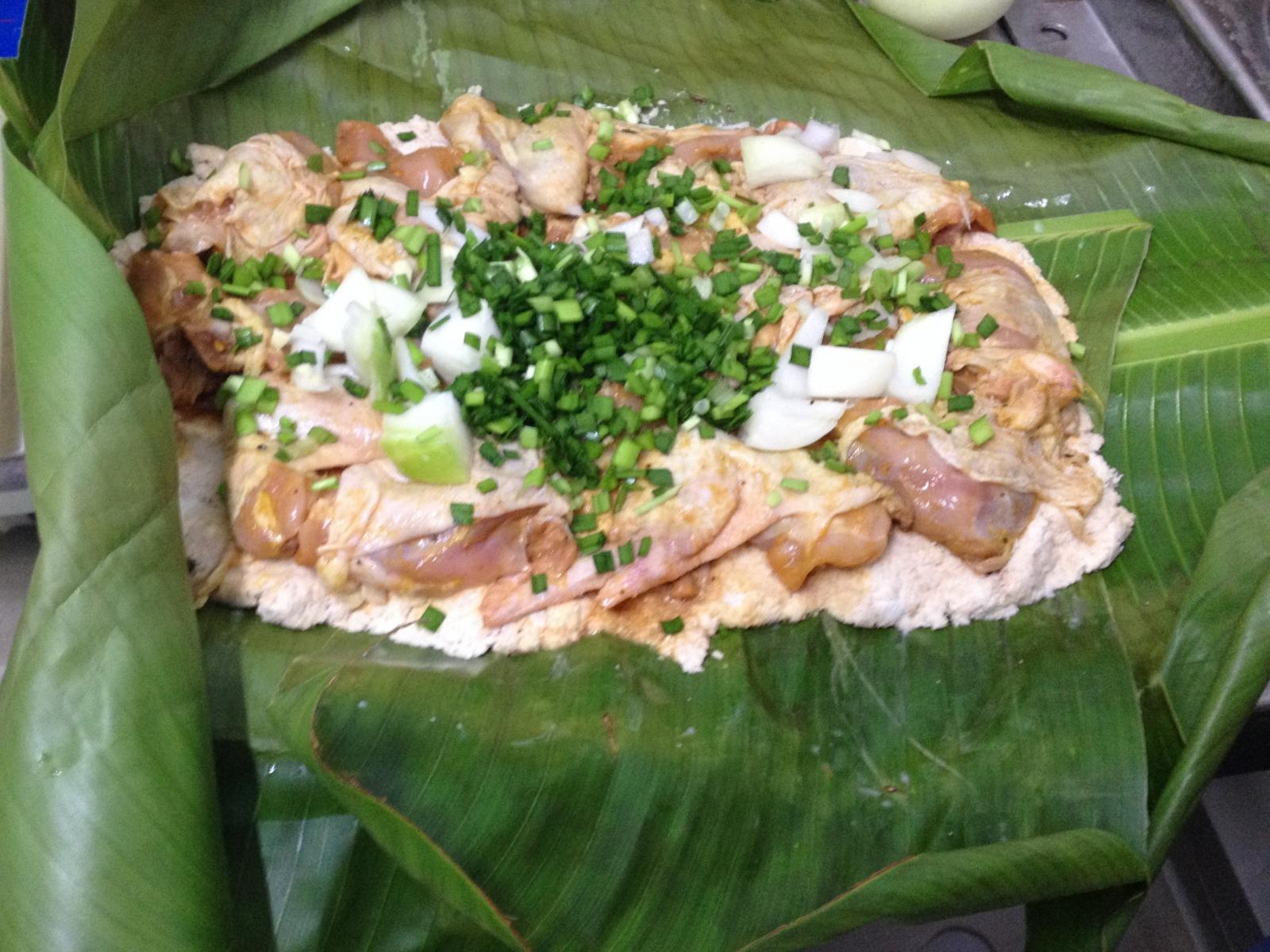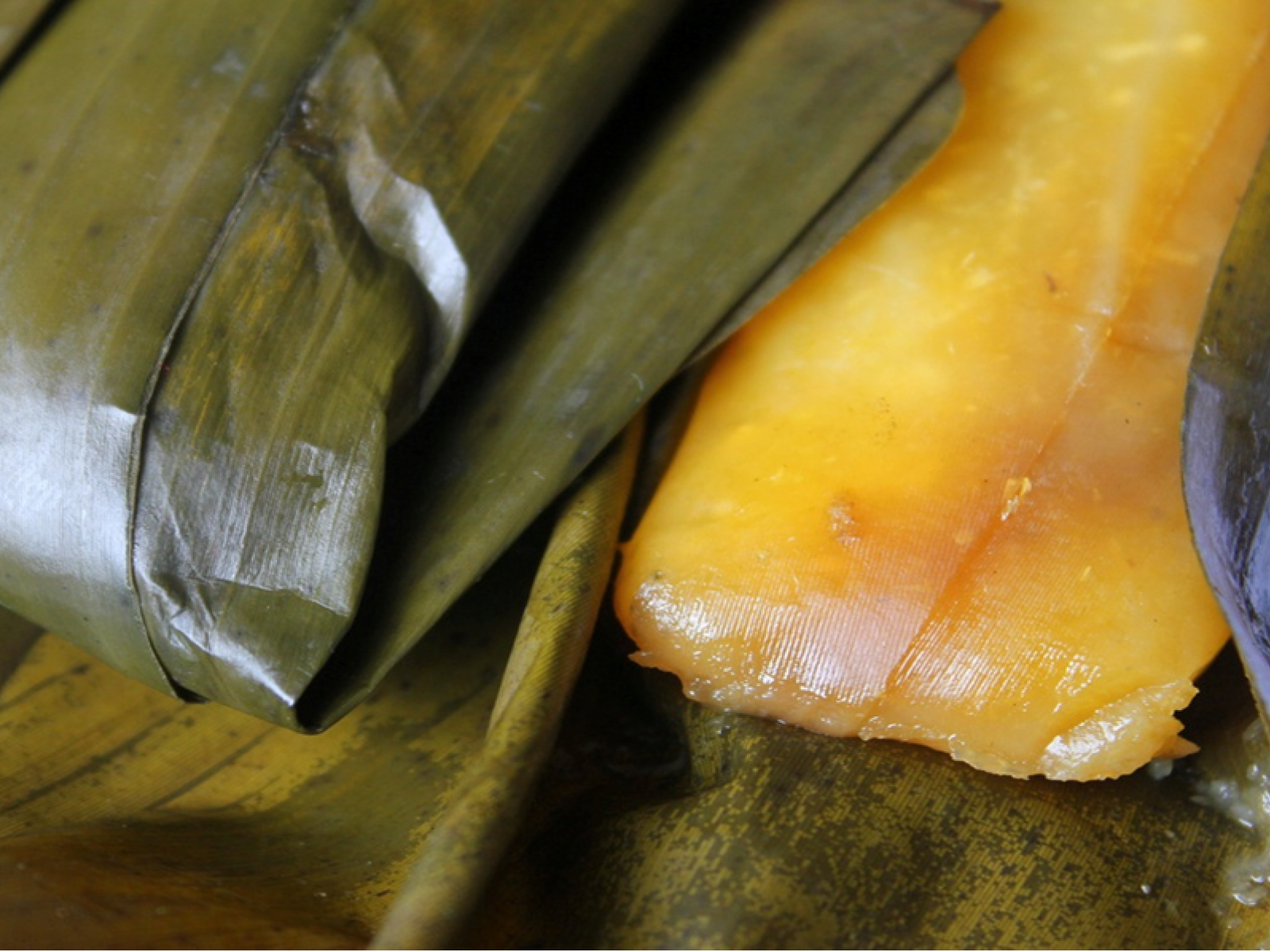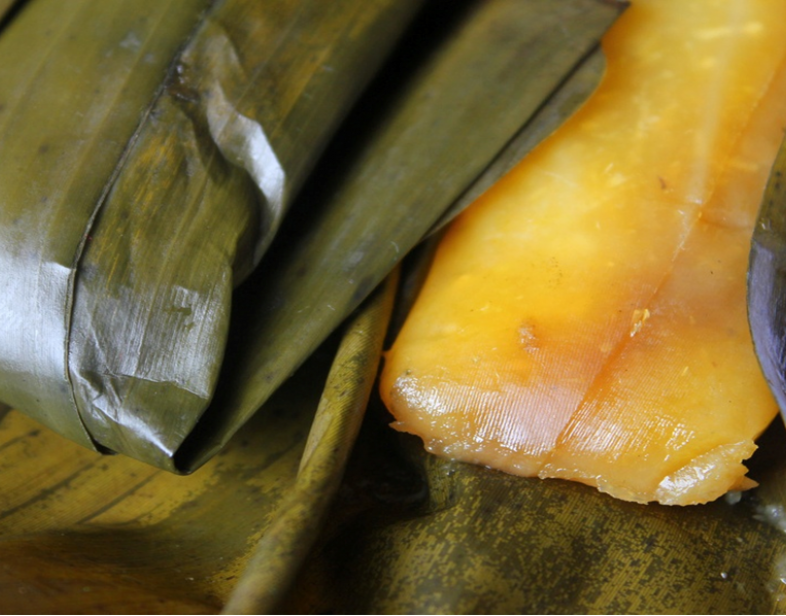An Overview Of Our Solution
Vanuatu, an archipelago of 82 islands in the South Pacific are particularly vulnerable to the affects of climate change with increasing number of cyclones & disaster events from active volcanoes. Eighty percent of the population (212,887) are subsistence communities living of the land & sea. The affects of climate change on cropping & annual harvest limit the seasons to a feast or famine cycle. Communities in the remote islands are considered extremely vulnerable. It is Fine Foods aim to change behavior by providing a pilot program, demonstrating & distributing a food security option of shelf stable traditional island foods prior to a disaster. Fine Foods unique and innovative finished product can be pre positioned for disaster relief. The scope & design of the project is to address an immediate need with the Ambae displaced communities due to volcanic eruption.
- Population Impacted: 100,000
- Continent: Oceania
Context Analysis
Banks groups of islands in the north of Vanuatu experienced a TC Donna, CAT 5 in 2017. The National Disaster Committee decided that the use of protein ( pork and chicken) shelf stable pouches weighing 2.5 kg along with cassava 2.5kg were to be sent to the affected communities. A leaflet on how to use was translated into Bislama ( local language). The Presbyterian Church picked up on the first consignment and organized delivery of the first food push. On arrival the protein pouches were all consumed but complaints arose about the cassava. Claims were made that people were dying and becoming sick. The demand from a few leaders in the community and in politics was for white rice and tinned fish to be sent. A investigation was conducted by area secretaries, NGO’s and a private charter which included a health worker, Cornelia Wyllie and a buyer of fish
1. There were no cases of diarrhea or deaths in the Banks group that were attributed to the food parcels
Describe the technical solution you wanted the target audience to adopt
The technical solution is marrying traditional food and preparation techniques into a modern food processing system. This Fine Foods has successfully done with the help of a food processing specialist. A retort is the single biggest must have item. Understanding the capacity and capabilities of a retort gave visiting farmers an understanding of the safety systems undertaken. Cornelia Wyllie experience in tropical agronomy has advanced the understanding that the wild harvests, local food crops can be economically viable when there is a value addition market in the supply chain to convert the oversupply waste into a value commodity. First comes supply, second processing, third redistribution with awareness training modules.
Type of intervention
Describe your behavioral intervention
The key is to change the way people think about disaster relief & the foods served. Shelf stable meals in flexible pouches has been accepted & used by international military forces and is appearing in supermarket shelves around the world. In developing countries it is still a new concept for remote rural communities who have only seen tinned products. As with the local beer it took many years before there was acceptance of the safety of the local brews. Likewise with Fine Foods pouch meals there is considerable emphasis needed to reassure that pouch meals have a 2 to 3 year shelf life without refrigeration & can be consumed with safety.
1. NGO’s, when being hosted by remote communities, have a history of taking white rice, sugar, two minute noodles as they don’t want to negatively impact on the limited resources. This is seen as a luxury item by the communities & becomes an unrealistic expectation. Providing nutritionally balanced range of meals in long life pouches that bridge the gap between the two cultural backgrounds will assist the target behavior change.
2. Malnutrition is evident in some communities. Educators find that without proper nutrition the level of learning is severely impacted. The nation is “dumbing” down due to empty calories. A switch to shelf stable individual meal pouches that are easily heated in hot water & served would not only lead to better nutrition, better learning but also recognition & acceptance of flexible pouches during a disaster.
As needed, please explain the type of intervention in more detail
Emotional appeals have been targeted to community leaders and the decision makers in the community. It now needs a whole of community approach to encompass women, youths and children. The women are those that carry the financial and work load within the community. After a disaster the heavy responsibility to find food to feed the family when gardens are destroyed falls on the women. They are time poor as community leaders demand the women’s time to clean up and replant. Men do not see themselves in the role of cooking. Whilst they see the convenience of white rice they also see the increase and need for medical interventions around diabetes and amputations. Fine Foods wants to build on NGO’s who are already working in trust relationships
Describe your implementation
a.commission Phillippe Carillo (international award winning movie director) to prepare a short information video on the value and supply chain of cassava chips. This is now an export crop from Vanuatu & enjoys a reputation of being a high value item destined for international markets. The growing of cassava then becomes a valuable status crop not a low value. Returns per hectare are greater than cattle farming.
b.Commission Phillippe Carillo to prepare a short information video on the handling & ease of use of meal pouches. This is to be used in awareness training sessions with the voice over being in three languages as well as being loaded up onto www.finefoods.vu web page
c.Develop & print a pictorial instruction sheet to go into each distribution carton. Pictures are an internationally recognized if this is to be prepositioned regionally
d.Provide 1000 samples meals to Ambae refugee centers with an explanation and demonstration using video and NGO’s to deliver message
e.Provide 1000 samples meals to NDMO for distribution through area secretaries in Maewo – host communities with an explanation and demonstration using video & community leaders
f. Provide 1000 samples meals to Education Department for distribution through school centers with an explanation & demonstration video.
g. Provide 1000 samples meals to interisland shipping companies without favor in order that transportation benefits can be seen as everyone’s responsibility.
2. How this will affect behavior change
a. Ambae volcano disaster has left no choice for the communities as all crops are destroyed. Relocation onto Maewo island has cost the Vanuatu Government over 1 billion vatu. A large percentage of this has been to shipping companies. By targeting shipping, schools, Government bodies & area secretaries in a combined & simultaneous awareness program backed up with taste it try & see will secure a better acceptance with less individual boycotting. No one wants to be the odd boy out.
External connections
1. Climate Smart – risk and resilience committee. Linked into the Prime Minister Office and makes recommendations to the National Disaster Management Committee. Support at a political level. Fine Foods has been a member of the committee and provided IP on produce and production
2. NGO – CARE, Save the Children –request and tailor make meals for the most vulnerable in the community. Children and women – building on trust relationships. Fine Foods hosts visits and awareness to the factory.
3. World Vision – Build long term relationships with remote communities, financial literacy, hygiene and nutrition. Fine Foods encourages visits from farmers to see where and how their produce is handled
4. Vanuatu Trade and Industry – connection with the cooperatives network a network of growers through out the archipelago. Fine Foods recognizes the role that Vanuatu Government plays and works closely with the Vanuatu Government rather than in isolation.
5. Vanuatu Agriculture Department – extension officers in distribution of climate adapted root crops and advise on agronomy . Fine Foods has signed contracts with lead farmers and has made land available on a demonstration plot to show commercial viability.
Who adopted the desired behaviors and to what degree?
Hon Prime Minister of Vanuatu – Salwai – white rice is banned in parliament meals.
Risk and Resilience Committee – recommendation to National Disaster Management Office for the use of local products
Dr Chris Bartlett – Climate Change – Advocates local nutritionally dense foods to be used in disaster relief
Vanuatu Department of Agriculture - promoting farming systems, resilient local crops, saving food traditionally as the first option and surplus to be value added / preserved.
How did you impact natural resource use and greenhouse gas emissions?
The choice of flexible packaging over cans reduces the carbon foot print. One shipping container of flexible pouches replaces 7 containers of cans, jars or bottles.
The 2.5 kg pouch were recycled as a building material in the repair of roofs. The smaller pouches were less waste than a tin. The cartons were biodegradable which the plastic bags from white rice are not.
Traditional farming systems are not broad acre style but more a balanced intercropping structure. Fine Foods advocates and encourages these farming practices.
What were some of the resulting co-benefits?
1. Transporters of food aid. Inter island shipping transport has had challenges in the delivery of food aid. Plastic bags of rice have been broken, rain has damaged packaged food and tins have deteriorated with the salt environment. Transport operators have less risk of claims when using food pouches. Food pouches are impervious to salt water or rain incursion. There is no need to transport water as the meal pouches are not dehydrated.
2. Cultural security – the use of meal pouches to secure traditional island meals of tuluk and laplap is providing an unexpected benefit for Ni Vanuatu living away from home. These meal pouches are nutritionally dense and can be exported under FSANZ, EU and USFDA standards.
3. Biodiversity - Traditional farming systems that work with intercropping and wild harvests are increasing as there is an economic benefit to the communities. Prior to a food processing option these crops were being wasted through seasonal oversupply.
Sustainability
Local food manufacture and the instigation of a food by the people for the people will rely on grant funding for 5 years. Given that natural disasters occur on a regular basis and that everyone in Vanuatu will be affected some time in the next three years by some disaster. It is imperative that Fine Foods and donors commit to supporting this initiative until the cycle of production and supply of local foods has replaced the current habit of giving empty calories. Vanuatu has a relatively small population that the innovation of locally produced shelf stable food pouches will be easier to implement. Vanuatu is well positioned to lead the way as to how food aid is distributed on the world stage. Vanuatu population is predominantly rural.
Return on investment
Fine Foods has invested over $3.5m USD into the food processing facility based in Vanuatu. It is about to invest in a further $5.5m USD. Financially disaster relief food parcels development has cost $80k. This is not considered a loss but a long term investment into product development, the health of the nation and to the future economics of farming. The intellectual property of developing these nutritionally dense foods into a shelf stable meal is also cross creditable to other production lines and to international export revenue. Fine Foods is ready to continue with the local promotion with donor assistance on the understanding that this will reduce foreign exchange losses, increase economic returns for the whole supply chain across
How could we successfully replicate this solution elsewhere?
The production of shelf stable food pouches in flexible packaging is not new. What is unique is the utilization of traditional crops and wild harvest plus traditional methods of preparation and splicing them with modern technology to maintain neutraceutical values. To the authors knowledge this has not been done before in any other country except Vanuatu. It has been an alternative to existing food aid, in Vanuatu over the last 18 months. The replication of individual countries turning to their own growers and own recipes is subject to the value addition infrastructure. Food processing in each country is at different levels Within the South Pacific region there are 4 countries with operating food processing facilities similar to Fine Foods. With slight modification, a desire to invest in the IP for their country , or to contract Fine Foods to assist is possible. To replicate this around the world needs one country to show it can be done. The funding required is USD $5m


